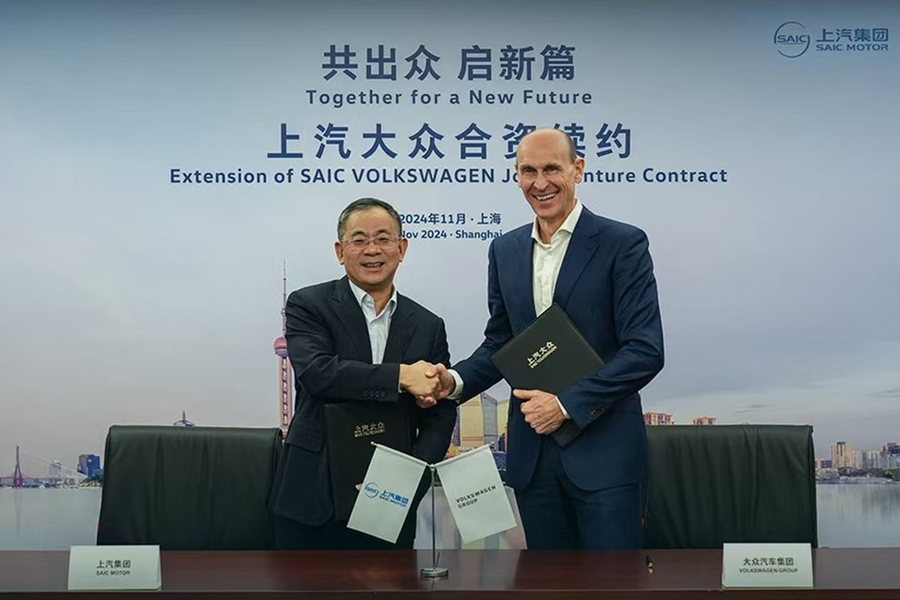VW and SAIC joint venture renewed

Volkswagen AG has extended its joint venture with SAIC by 10 years to 2040, a sign of the global carmakers' confidence in the world's largest vehicle market.
The renewal of the SAIC Volkswagen partnership, which was finished last week, comes when the current contract still has six years to go.
In October, sales of Chinese-branded vehicles rose to exceed 70 percent of total passenger vehicle deliveries in the country, according to the China Association of Automobile Manufacturers.
The rise of local volume brands is eroding the share of international carmakers including Volkswagen and Toyota.
"With the long-term contract extension, we underline the importance of this collaboration and the significance of the Chinese market for the Volkswagen Group," said Ralf Brandstaetter, member of the board of management of Volkswagen AG for China.
The German car group joined hands with SAIC, China's largest State-owned carmaker, in 1984. That was when the country was still considered a kingdom of bicycles, so the partnership has long been seen as a pioneer of China's reform and opening-up policy and a model of Sino-German economic cooperation.
Wang Xiaoqiu, chairman of SAIC, praised Volkswagen's foresight when it came to China 40 years ago. So far the joint venture has sold more than 28 million vehicles.
"Together with SAIC, it pioneered the path of Sino-foreign automotive joint ventures, successfully forging a mutually beneficial cooperation model," said Wang.
Brandstaetter said the two sides are accelerating the transformation of SAIC Volkswagen.
Among other things, both shareholders will integrate their respective advantageous resources to support the joint venture in developing new models, including pure electric and plug-in hybrid vehicles, tailored for the Chinese market.
By 2030, SAIC Volkswagen will launch 18 new models, 15 of which will be exclusively developed for the Chinese market.
"With the new agreement, we are strengthening the development resources for emerging technologies at SAIC Volkswagen, thereby further intensifying our integration into the Chinese ecosystem to consistently leverage local innovation," said Brandstaetter.
The extension of SAIC Volkswagen is one of many moves by global carmakers in China to expand their presence.
In October, South Korean carmaker Hyundai elevated its 3-year-old Shanghai-based advanced technology R&D center into a fully-owned subsidiary.
Hyundai said the move shows its commitment to the Chinese market and that it hopes to leverage the center's expertise for its business in other parts of the world.
The center focuses on the needs of Chinese consumers and deepens the research and development of technologies and application scenarios that are more suited to them.
In terms of user research, the center plans to open a UX Studio in Shanghai, which will become a brand touchpoint between Hyundai and Chinese consumers.
Yang Feng, head of the center, said the UX studio is scheduled to open in the first half of 2025, adding that it will be the second of its kind after the first one in Seoul.
"Having entered China for more than 20 years, Hyundai Motor Group has invested over $13 billion in the country and established 65 legal entities," said Yang.